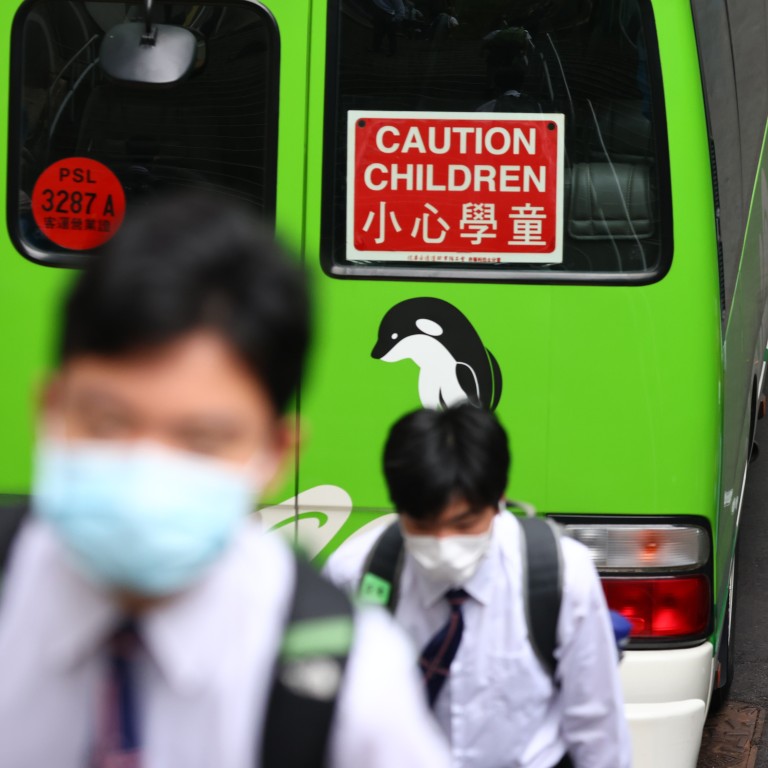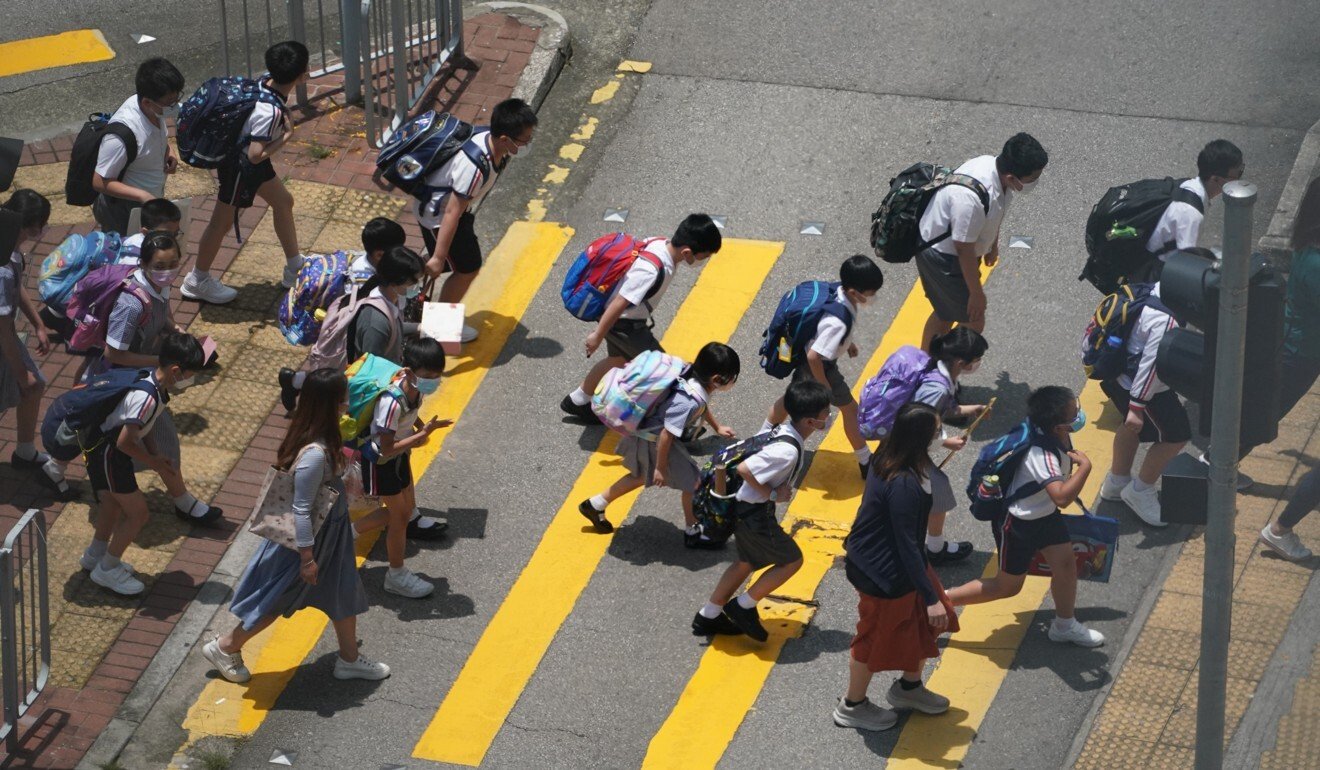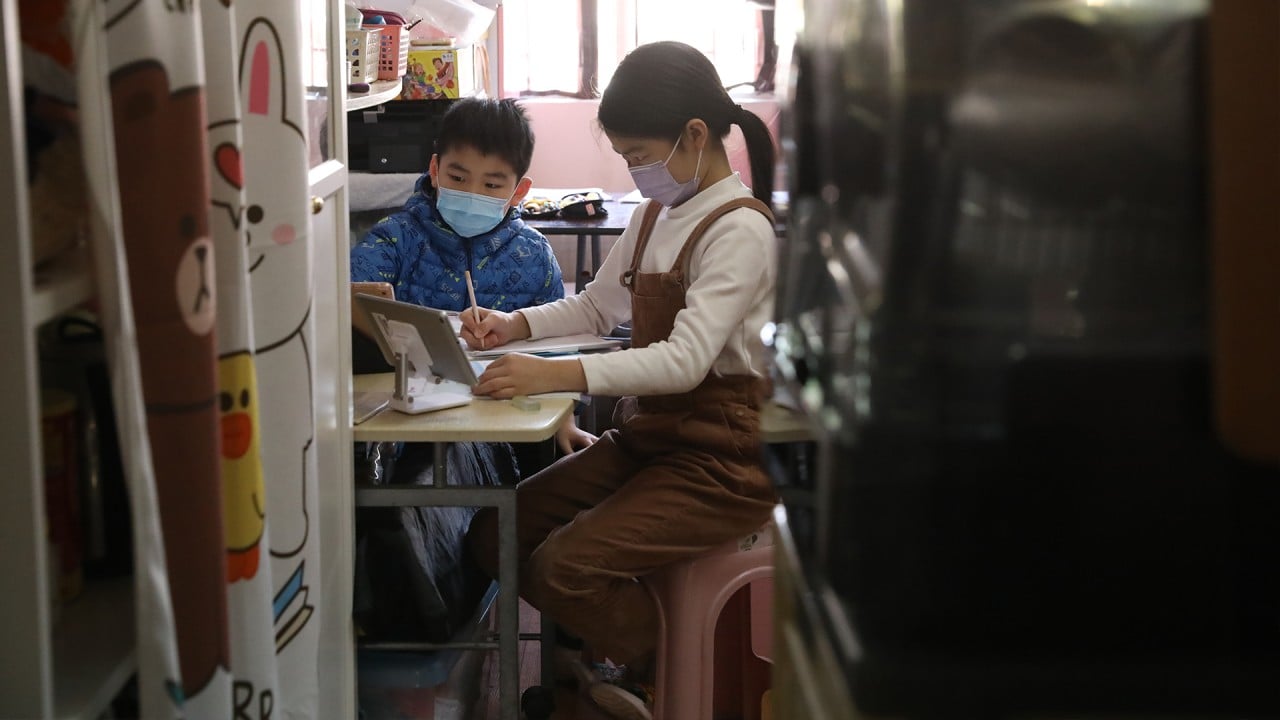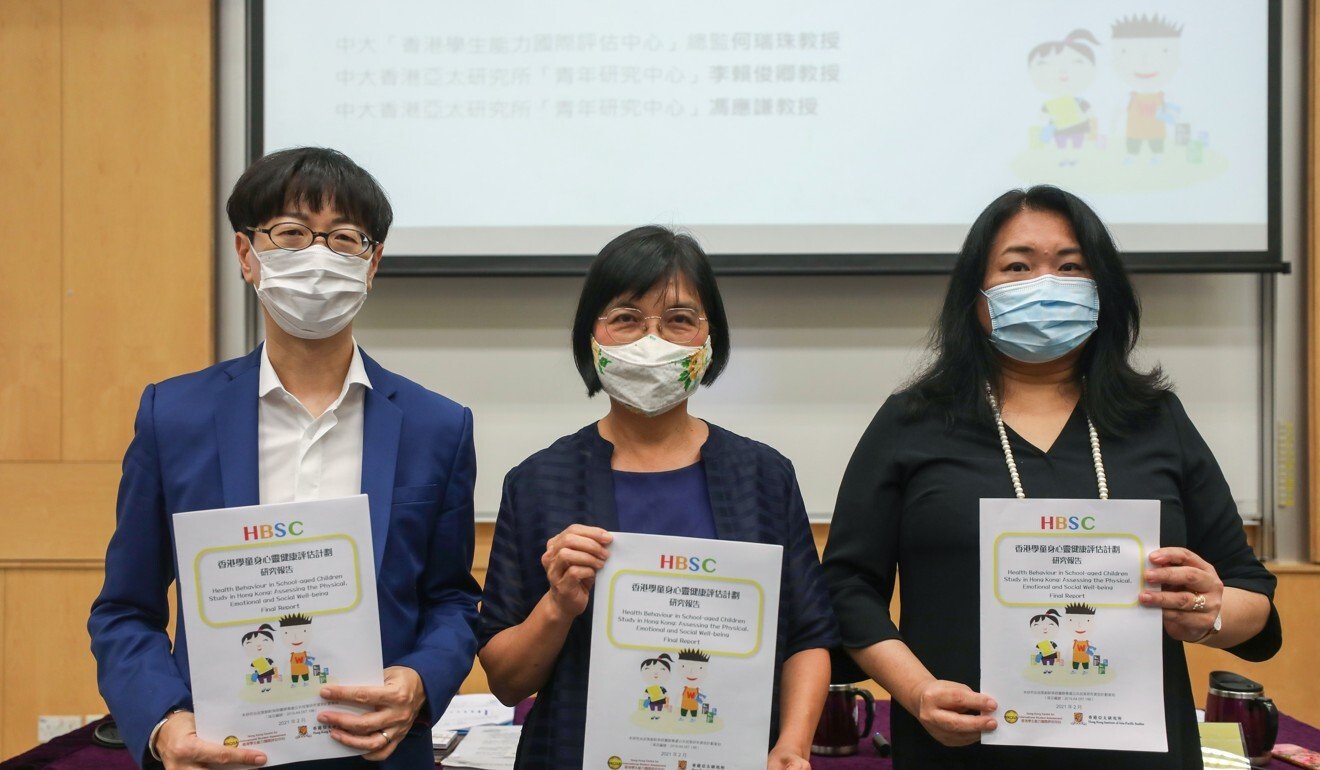
Hong Kong’s children unhappier, less healthy than peers elsewhere, new World Health Organization survey finds
- Researchers from Chinese University spoke to 5,300 schoolchildren across city, aged 11, 13 and 15
- Compared to international average, 10 per cent more children in Hong Kong reported feeling depressed
The life satisfaction and health levels of Hong Kong schoolchildren are far below international levels, local researchers have found, pointing to difficulties pupils face in communicating with their parents and a lack of exercise as key factors affecting their happiness.
Compared to the international average, 10 per cent more children in the city reported feelings of depression, while five times more were not exercising at all compared to their peers elsewhere.
Researchers from Chinese University ran the World Health Organization Health Behaviour in School-aged Children (HBSC) survey for the first time in Hong Kong, gathering data from more than 5,300 pupils aged 11, 13 and 15. Overall, local children scored 6.97 out of 10 on the life satisfaction scale, lower than the average of 7.8.
“Differences in social structure is one of the key reasons for this, I believe,” Professor Anthony Fung Ying-him, of the university’s centre for youth studies, said. “Parents in poorer families probably spend more time trying to make a living, which means children end up relying on their friends for support more.”

The survey found pupils from well-off families scored much higher in terms of life-satisfaction and self-rated health, with students from the lowest socio-economic status families scoring 6.44 in life satisfaction and those from the highest scoring 7.47. The most well-off pupils scored 2.86 on self-rated health, while those from the poorest families scored 2.64.
Only 15.5 per cent of children in the city rated their health “very good”, compared to the 36.3 per cent in the HBSC average, while 39.8 per cent of Hong Kong pupils reported feelings of depression, compared to just 29.3 per cent among the HBSC average.
Children who felt they could rely on their families for support also scored higher than children who did not in terms of life satisfaction and self-rated health, as well as reporting less negative mental and physical health symptoms, such as feelings of depression or headaches.
Hong Kong children have packed on the pounds stuck at home: survey
Professor Annisa Lee Lai, also from the centre for youth studies, said families in Hong Kong tended to also hire domestic helpers to raise their children while parents worked long hours.
“Parents abroad don’t really hire people to do things for them, they spend a lot of time with their children,” she said. “Parents [here] are unable to help solve their children’s frustrations if they are communicating through another person.”
The HBSC survey is a collaborative cross-national survey between the WHO and more than 40 countries in Europe and North America first started by researchers in England, Finland and Norway in 1982. It is usually conducted once every four years, with the last being done in 2018.
This is the first time the survey collected data from an Asian region using the international standard questionnaire developed to understand key health behaviours such as life satisfaction, self-rated health and substance use, the researchers said, hoping the results could serve as a benchmark for future child development policymaking.

05:39
Covid-19: Hong Kong’s needy pupils sidelined by online learning one year since class suspension
The Hong Kong survey also found children in the city had abysmal exercise rates, with more than 60 per cent of the pupils surveyed reporting they exercised less than three days a week, while 22.5 per cent said they did not exercise at all. This is in contrast with the HBSC average where 20.4 per cent of the children surveyed reported that they exercised seven days a week.
“The fact that the number of Hong Kong children who do not exercise at all is five times higher than the international average shows how serious the situation is,” said Lee, who added that the WHO recommends children get at least an hour of exercise each day.
But Lee said there were ways parents could kill two birds with one stone and help improve a child’s well being, such as by adopting a method called “walk and talk” and exercising with their offspring.
“It doesn’t matter if it’s playing ball games or going hiking, as long as the parents are doing it with the children,” she said.
Lee said parents should aim to do so at least 30 minutes each day or three times a week. “I guarantee your child will show changes in their behaviour,” she said.
Happiness among Hong Kong children at five-year low, new survey finds
The Education Bureau said it was promoting parents’ participation in their children’s education through schools, stressing they had a role to play in pupils’ happiness as well.
Hsu Siu-man, Hong Kong Federation of Youth Groups services coordinator, said the lingering pandemic might play a big role in making local students less satisfied with life.
“There was no class,” Hsu said. “Students were stuck at home for most of the time and could not see their friends as often as before. They would easily get frustrated.
“Although the pandemic is a global problem, the crowded living environment in Hong Kong could increase the tension among family members.
“Just imagine your parents would need to work from home too, or they might also face being thrown out of work because of the poor economy. Young people can also face big pressure even when they are at home.”
While peace seemed to have been returning after the 2019 social unrest, Hsu said: “Some younger students may be affected by the gloomy political sentiment from the news or family members. We heard that some young people also felt a bit depressed to find some of their friends or teachers emigrating.”

Sze Lai-shan, deputy director of the Society for Community Organisation, which works with lower-income families, said she was not too surprised by the survey’s findings.
“Young people from less better-off families are the worst hit during the pandemic,” she said. “Study-at-home is almost a mission impossible for them. Many of the children from poorer families cannot afford a computer or even internet at home, Some parents complained to us that their children turned more bad-tempered during the year.”
She proposed the government give more subsidies to young people from lower-income families to buy electronic devices for their studies and more support for groups, such as jobless allowances.


